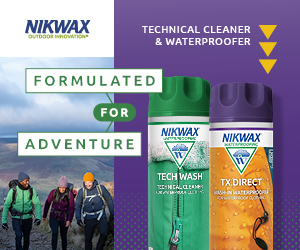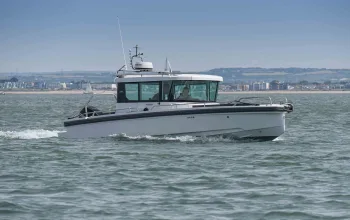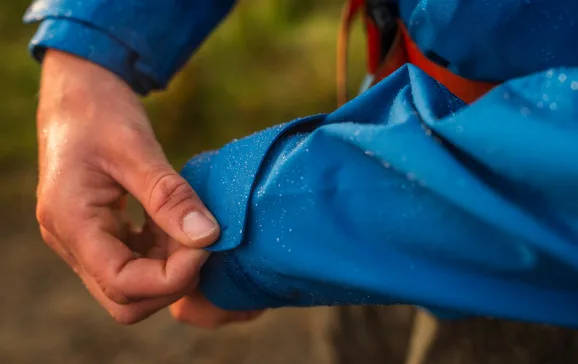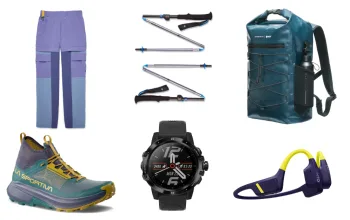In the warmer months a lightweight, easily packable waterproof and breathable jacket is a ‘must have’ item. You don’t need the insulation properties of a winter jacket, but you do want a top layer to keep you dry without the ‘boil in the bag’ effect of overheating inside it.
Alf Alderson takes a look at the technologies and methods that go into making a jacket perform.
Lightweight
You don’t want to be lugging around a heavy, insulated waterproof in summer, as even when it rains it’s usually reasonably warm and humid. An insulated jacket will make you sweat buckets inside it, even if it keeps the rain out. A lightweight jacket will normally be more ‘packable’ too, so that it takes up less space in your bag.
Waterproof
This goes without saying of course, but some jackets are ‘more waterproof’ than others. In tech terms, the higher the jacket’s ‘hydrostatic head’ the more resistant to precipitation it will be. This info should be on the garment or the manufacturer’s website and written as ‘mm H2O’ – look for around 20,000mm H2O on the label.
Breathable
You could wear an old bin liner if keeping the rain out was all that mattered, but your jacket also needs to be breathable, especially in summer. If not you’ll end up with the ‘boil in the bag’ effect as you simply get wet from sweat on the inside of the jacket. Look for a ‘Moisture Vapour Permeability’ rating of around 20,000/m2/24hrs – a higher rating means that the fabric is more breathable.
Zips & pockets
Water resistant zips are vital, while an adjustable, well-fitted hood is also pretty necessary in downpours. Armpit zips are also great in warmer weather as they help ventilate the jacket. Some jackets will also have large pockets with mesh inners, which can act as ‘vents’ when the zips are unfastened.
Seams
These are important, as they’re where moisture is most likely to get into your garment. Laser cut and glued seams are best because, unlike stitching, they don’t involve putting holes into the fabric. It’s even better if they’re taped as this is one more defence against that dreaded precipitation trying to get in.
Top ten lightweight jackets coming soon!




















